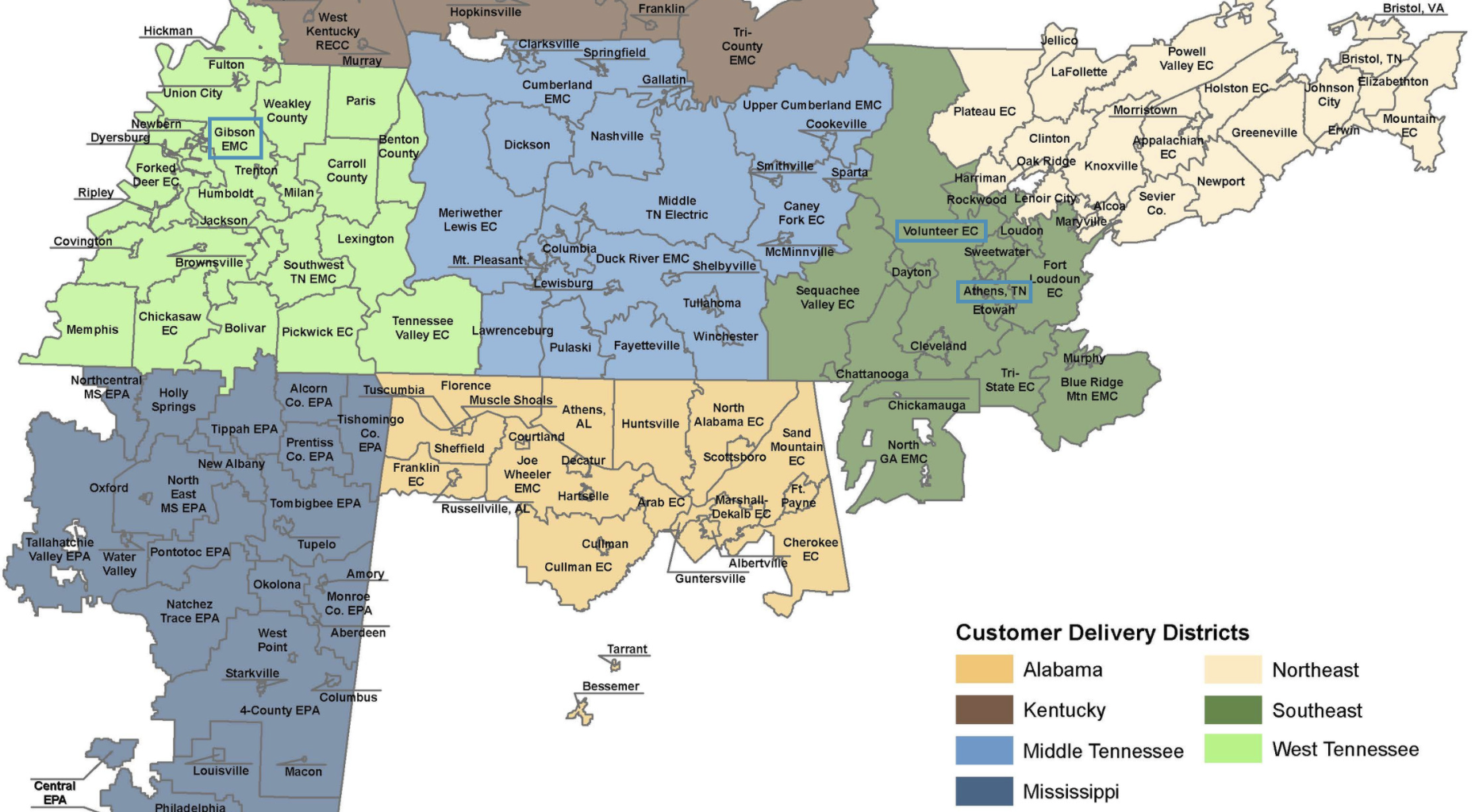Two TVA local power companies have filed an appeal to the DC Circuit Court after a decision by federal regulators blocked their ability to fairly access TVA's transmission system.
Maggie Shober | February 18, 2022 | Energy Policy, Tennessee, UtilitiesThe Tennessee Valley Authority (TVA) claims it is exempt from a federal law that states electric utilities must provide open and fair access to TVA’s transmission system. But last year, a few of TVA’s utility customers challenged that assumption by filing a complaint with the Federal Energy Regulatory Commission (FERC), which oversees energy transmission access cases.
The utility customers, called Local Power Companies or LPCs, that brought the complaint claim to have found ways to meet their end-use customers’ needs cheaper through electricity supplied by power companies other than TVA. But since the LPCs are located within TVA’s transmission footprint, the LPCs reached out to TVA to begin negotiating what it would cost for them to wheel power from the new supplier to the LPC. Wheeling is just a fancy word for transporting electricity through a transmission system, but that electricity is just “passing through” to an end-use elsewhere.

This FERC proceeding generated a lot of interest, with numerous environmental and clean energy entities intervening, including us at the Southern Alliance for Clean Energy (SACE).
In a 3-1 vote last October, FERC did not rule that TVA had to negotiate with the LPCs, despite statements from FERC Chair Glick that TVA’s so-called transmission “fence” is outdated and in need of a fix. The FERC order on this decision was, frankly, confusing. Most of the order is background on the proceeding, all of the filings from the various intervenors, then has a very brief section in which FERC says that it has descretion to bring TVA to the negotiation table, but they are declining to do so now. However, Chair Glick’s comments on why he voted for this result seem to contradict this by saying he does not believe Congress intended to give FERC the authority to allow utilities in TVA’s territory fair access to TVA’s transmission system.
Today, two LPCs, Athens Utilities Board and Gibson Electric Membership Corporation, appealed FERC’s decision to the DC Circuit Court of Appeals. This is the first step in asking the courts to take a look at FERC’s decision. This is particularly important in this case since the issue hinges on a part of the Federal Power Act (Section 211A, which is US Code § 824j-1) that is largely untested. While FERC may be hesitant to rule in a way that it views as forcing a major change to the status quo in the region, the courts are a reasonable venue to determine whether or how federal legislation is applied in this case.
A decision on this case by the [District Court] could then be appealed to the Supreme Court. All of this could many months or years, and significant time could pass before LPCs have certainty on this issue. An LPC that is not directly involved, but surely watching closely, is Memphis Light, Gas, and Water, which is reviewing responses to its Request for Proposals (RFP) for alternative suppliers. MLGW went ahead with its search process assuming it would not have access to TVA’s transmission system, and thus included an RFP for duplicative transmission connections across the Mississippi River.
We’ll continue to track this case as it makes its way through the courts.